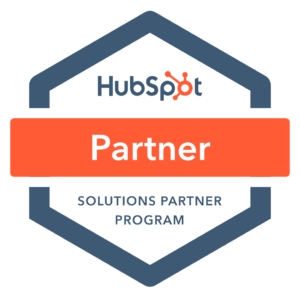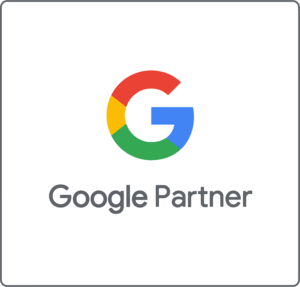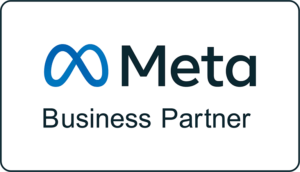We recently put out a call to small Aussie business owners to ask what their most common gripes with Google Ads are. In no particular order, here are four top-ranking issues our respondents told us they have with Google Ads:
1. Circular advice from reps
You get a call (or an email). It’s from a Google specialist, telling you they have noticed parts of your account which could be better optimised – the spend, or tweaking the settings for keywords, or applying any number of recommendations.
For a little while you see some improvement, but then you start to notice that while your spend has increased, the quality of your leads and your return on Ads spend (ROAS) aren’t stacking up proportionately.
From Max Milstein (Director, Apex Tuition): “When we first started, I was excited to get a message from Google seeking to help me set up my account. I eagerly set up a call and followed all of their advice. Our campaign was performing fine, but results were not great. Then 3 months would go past and I would get another rep… I learnt that the advice they provide is usually sub-par and they are not really ‘specialists’ at all but rather just want to get you to spend money on Google.”
Are these Google specialists legit?
Yes, though they are usually subcontracted companies or consultants rather than direct Google employees.
They know how Google Ads works, but the advice they give is not usually specific to what you really want to gain from your Ads activity. This can be problematic for many, especially small businesses, because it often makes Ads campaigns too broad to be effective.
How to solve: Be selective
The best advice is, ironically; “Don’t listen to every piece of advice you’re given.”
Much like the automatic recommendations on the Google Ads dashboard, you are allowed to skip over what doesn’t apply to you. The amount you spend, the settings for keyword targeting and demographics… anything really. Take advice from Google and its specialists with a grain of salt.
The next best advice is to track everything. If there is a recommendation you would like to try, make sure you have tracking set up for conversions etc. so you know whether or not it works over time.
Then if you end up in a loop with rotating Ads specialists, you’ll at least have proof of what has or hasn’t worked before – making it easier to determine the value of any recommendations.
2. Scaling your Ads spend


Hitting the balance between scaling up your spend, and making sure your budget is still achieving the same Return on Ad Spend (ROAS), is not as simple as “put more money in, acquire more customers”.
Say you want to scale up 100%. But, when you increase the budget for your PPC campaigns, you don’t see a corresponding uptick. Your ROAS has become smaller because you’re spending more without making it back in sales or customer acquisition.
How to solve: Focus on Return, not just spend
ROAS should be consistent when scaled. You need to know that your ad spend is delivering value; your ROAS will show that better than your CPA (cost per acquisition) or CPC (cost per click).
Firstly, you need your total conversion value. This is what your business earns from a given conversion. Say you sell one unit of product for $100; that would be the value of the conversion.
The ROAS formula is total conversion / advertising costs. If your ad spend to sell one unit of that $100 product is $20, you have a ROAS of 5. For every dollar you spend on advertising, you get $5 back. In numbers: 100 / 20 = 5.
This makes it easy to see that if you increase the advertising costs and the total conversion does not also rise, you would not be getting the same return (profit).
If you hit your ROAS consistently, you might be ready to scale. If you don’t, spending more could potentially help – there is such a thing as too little spend. But it’s worth checking if your campaign is properly set up first, as there may be other factors impacting performance.
3. Increasing competition (and cost)


Google Ads, like many platforms, is getting increasingly competitive. This makes it more difficult (and sometimes more expensive) to rank for common keywords. More than that, there’s added pressure to be click-worthy in a world where users are constantly shown ads as they navigate online spaces.
TL;DR: The CPC for common keywords is increasing, and the impact of some ads can be lessened as users become desensitised to their presence.
But – all is not lost. You can still effectively leverage your Google Ads spend to be in the right place, at the right time, for the right people.
The intuitive leap might be to outbid the competition. If you’re a small business with big competitors, however, this can be tricky.
When David faced Goliath, he didn’t win by going toe to toe and using the exact same methods as the giant. He won by using his own resources well – happily, so can you.
How to Solve: Refine, optimise, explore & diversify
- Refine your targeting: Targeting is more crucial than ever as online spaces become saturated with advertising. Make use of the advanced targeting in Google Ads to hone in on the demographics, interests, and behaviour of your ideal customer – someone who is genuinely interested in your offering.
- Optimise your Ads: Use high quality visual elements, and write compelling copy. The more concisely you can communicate the value of your offering, the better.
- Explore your options: Have you leveraged ad extensions to provide additional information, like site links and callouts? Have you tried using a mix of long-tail keywords to target your audience?
- Diversify your digital strategy: Google Ads is not the only option in your toolkit. This is where diversifying into social media advertising (like Facebook Ads), display advertising, and having a strong SEO strategy to support your paid campaigns can help.
Many of the things addressed in SEO work can also push up your Quality Score, which helps Google recognise you as a good source where users often find what they are searching for.
Read more:
- Google Ads vs Facebook Ads in 2024 — Why You Need to Test Both Platforms
- SEO vs Google Ads: Which is right for your business?
4. Complexity, time, and knowledge


While it’s capable of great things, there’s a steep learning curve for Google Ads. It’s very difficult to nail it the first time and there is a lot of specialised knowledge involved in long-term success. Going down the Google Ads rabbit hole can be a time consuming exercise for the uninitiated, and there is a lot of best-practice advice to wade through.
From Founder and Creative Director at Rachel Beth Jewellery, Rachel Lake: “Google Ads can be overwhelming, especially for small business owners who don’t have a digital marketing background. The complexities of campaign structuring, keyword bidding, and audience targeting require specialised knowledge to be effective.”
Even once linked with GA4 (formerly Universal Analytics), building and interpreting accurate reports to show what has happened and why can be a challenge.
From Austin Rulfs, Director at Zanda Wealth, Google Analytics is “like being handed a Ferrari without a manual – you know it’s got potential, but you’re not sure how to handle it.”
Google will show you screeds of data about “what”, but you more or less have to figure out the “why” yourself – which often comes with time and experience.
How to solve: Setting up conversions & reporting
When you know what your conversion action will be, you can create it in Google Ads so your account will recognise when this has been fulfilled.
Setting up conversions
- In the upper right corner, click on tools menu > conversions > measurement.
- In the resulting section, click +New conversion action.
- Follow prompts to enter your domain – this will check if you already have the Google tag installed on your website. If not, you’ll be provided a snippet of code with instructions on how to install this on your website.
- From the GA console: If you’re looking to set up a page load as a conversion, you can choose a URL setup. For other conversions you will need to select a manual setup.
In manual set up you can assign custom parameters. You’ll also need to do some additional set up to add the action’s unique event snippet – the console will guide you through the relevant prompts for this.
You will need to install the Google tag on every page of your site so it can accurately capture any conversions.
Analysing the results
It can take up to 24 hours for conversion data to start appearing. If data hasn’t appeared after that, you either haven’t had any conversions, or you need to check that your tagging has been implemented properly.
You can analyse your performance within the Google Ads console or through GA4, but bear in mind that by design you will only see the “what” and perhaps some automated suggestions for improvement. Google as a tool does not provide the “why” on performance, unless there is a specific error stopping your ads from running.
By linking your Google Ads account to your GA4 account, you can see the whole customer life cycle (including organic or “free” traffic). This can give you more insight into customer behaviour on your site so you can see what is and isn’t working.
Some common signs that further tweaks are required to Google Ads:
- Low click-through rate (CTR): People aren’t compelled to click through to your site from your ads. This could suggest that you need to work on the look and feel, to craft something more compelling.
- High bounce rate: Similar to the previous, but they have clicked the ad and gone to your website – they’re just leaving basically right away. This is usually a hint that your landing page is not what they’re looking for.
- Insufficient ad impressions: This low visibility is likely due to your bids being too low, trying to bid on highly competitive keywords, or having a poor Quality Score.
- Irrelevant traffic: Lots of traffic and no conversions? You might want to take another look at your targeting and make sure your ads are aimed at the right people. It’s easy to cast the net too wide.
Working with a Google Ads Agency


Whether you’re just starting out with Google Ads or feel like you’re going in circles chasing your target ROI, sometimes the most efficient use of resources includes leveraging someone else’s knowledge and skill.
If you’ve worked with an agency before and been less than satisfied, look for an agency offering:
- Transparency around pricing and services
- Regular, accessible reporting (that isn’t just jargon, buzzwords and numbers)
- Fast communication with the person working on your account
- A suite of digital services to build out your digital presence and performance
- Compelling case studies and plenty of happy clients
Not keen on an agency partnership at this stage? Even if you keep your Google Ads management in house, getting a thorough Google Ads audit from a good agency can really make a difference to performance.
An audit can save you money by identifying cost savings opportunities, finding any areas in your framework that can be optimised for better performance, and help you use your existing budget to the fullest for quality leads and conversions.
Google Ads with Eurisko
We save our clients time and money with a tailored Google Ads marketing plan, treating your budget as if it were our own. Our strategies are data-driven with a creative flair to help you stand out online.
We don’t believe in throwing around flashy words in meetings – we’ll keep you updated with exactly what’s happening on your Google Ads account, answering any questions you have.
Need more? We’re also experts in technical and on-page SEO, Facebook ads, website design, and offer bespoke digital strategies so you can navigate the competitive online world with confidence.
If you want an agency partnership that ticks all the boxes, get in touch today to learn more about Eurisko’s expert digital marketing services.




